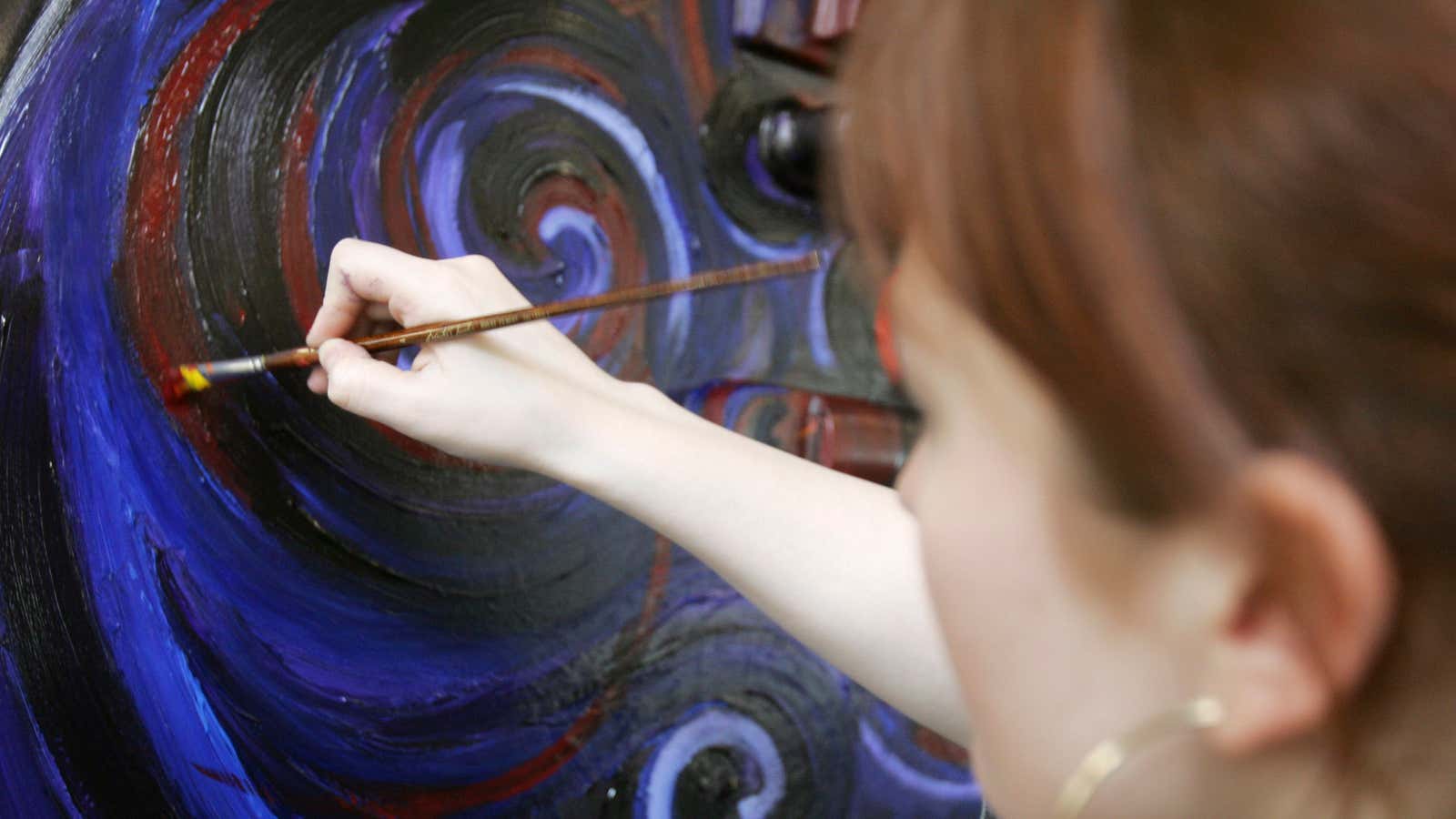A lot of us are experts at coming up with excuses not to pursue our creative interests. “Do you know how old I’ll be by the time I learn to play the piano?” we ask, imagining how foolish we’ll look stumbling over “Chopsticks.”
Well, we’ll be the same age if we don’t.
There is no such thing as a person who is “too old” to be creative. But “I’m too old” is something adults say in order to avoid the emotional cost of the ego deflation involved in being a beginner.
My new book, It’s Never Too Late to Begin Again, aims to help people silence their inner critics so that they can get to work. That means that learning to confront some of the most common misconceptions about creativity and aging:
“It’s too late.”
Because many people haven’t tried painting or poetry since they were young, they make the mistake of believing that youth and creativity are inextricably linked. But creativity is always with us. It doesn’t mysteriously dry up when we hit age 65.
Or 55. Or 35. Or 85. Or any other arbitrary number we might assign. It is never too late to explore our creativity, despite what an ageist society might want us to believe.
What can we do about this ageism? We can begin anyway. We can make art.
Our creativity does not diminish with age. Our creativity lives at least as long as we do. I would say that it lasts much longer.
“If I were creative, I’d know it by now.”
I have never met an uncreative person. Self-expression is something that is not—and should not—be limited to a rarified few.
Each one of us is creative. Each person has something unique to bring to the world. In retirement, we have both time and experience on our side. Retirement is a time to tackle projects and unlock dreams, a time to revisit the past and explore the unknown. It is a time to design our future.
“My life isn’t that interesting.”
One especially heartbreaking sentence I have heard over and over from my newly retired students is, “Oh, my life wasn’t that interesting.” They assume that if they didn’t live among gorillas or have passionate affairs with heads of state, they have nothing to draw on.
The truth is that every life is fascinating, if we are willing to closely examine it. And when we are willing to look at, and thus honor, the life we have led, we inevitably bring ourselves to a place of both power and self-appreciation. We re-discover old dreams and inspirations that ignite us still. We see patterns of interests that we’ve explored and abandoned over time. There are clues in all of our lives that point to what will bring us joy in our own “second act.”
“I don’t have the energy.”
It is my experience that pursuing creative activities will give you energy. To explore our creativity is to get in touch with our youthful selves, who have many plans, ideas, and opinions about what we might do. In the moment of creation, we are timeless. We are connected to a higher source—a source that gives us all the energy we need.
Making art of any kind is an alchemical process. In making art, we re-create ourselves and transform the events of our lives. The ordinary becomes extraordinary; the commonplace becomes special. We transmute our memories into priceless episodes. We make our past present.
My friend Judy Collins, the singer and songwriter, gave 150 concerts last year at age 76. She used her time on the road to write a fiery manifesto about her youthful eating disorder.
At 68, writer Natalie Goldberg has two books debuting simultaneously. “I think they’re my best ever,” she says.
My friend Rob Lively published his first book, The Mormon Missionary, at age 72, one year into his retirement from a long career in academia. “I have the time, I have the money and I have a lifetime of knowledge; this all informs my creativity, and my book is better written than it would have been thirty years ago,” he tells me.
In the words of Lauren Bacall, “Here is a test to find out whether your mission in life is complete. If you’re alive, it isn’t.”




